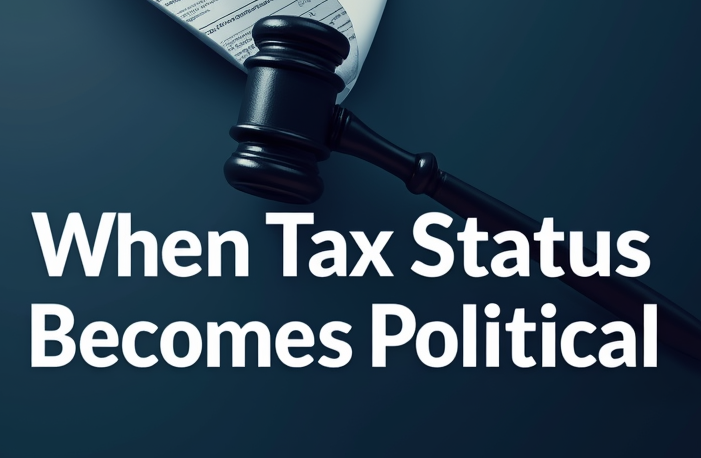Legislative Round-Up | January 2022
Included in this Round-Up
- National Privacy Legislation Overview + Colorado
- Universal Charitable Deduction
- IRA Charitable Rollovers
- The US Postal Service (USPS)
- From the States
A New Wave of Data Privacy Legislation is Here
Why Should Nonprofits Be Concerned?
At this writing, there are data privacy laws on the books in California, Colorado, and Virginia (CA is in effect now, CO and VA take effect a year from now). There are no fewer than a dozen bills under consideration, and it’s only January. More, perhaps many more, will follow in 2022. There are warning signals for nonprofits.
The Colorado law does not exempt nonprofits. This means organizations located in the state or having programs in the state will be subject to the law’s requirements if they meet the law’s volume thresholds (more specifics on Colorado below). It is as yet unclear whether the law will be applied to organizations without a physical presence in the state but who solicit in the state. A quirk in Colorado law makes this a distinct possibility.
The Virginia law illustrates another troubling issue. Nonprofits are categorically exempt, but there’s a rub. While otherwise not an unduly burdensome law (says those who will be governed by it), an entire new regime regarding “sensitive data” will be imposed on data providers. “Sensitive data” includes, among others, race or ethnicity, sexual orientation, citizenship status, and “religious beliefs.” If you use third-party data firms and “sensitive data” for either fundraising or program purposes and this approach catches on, sooner or later you may be out of luck.
TNPA remains watchful, and to the extent we can navigate the blizzard of legislation on the way, we will try to head off similar provisions in other states. We will keep you informed by way of our website and future monthly Legislative Roundups, like this one. If you have questions in the meantime, don’t hesitate to reach out to us at rtigner@tnpa.org.
Help Us Help You in Colorado
In 2021, Colorado enacted a new data privacy law (SB 190). It takes effect July, 2023. In December, Bryn Weaver of member-firm Wiland posted a blog on the company website containing a warning to nonprofits: Nonprofits may well be among those data holders to be regulated by the law. He was right to issue a warning. There is no reasonable way to read the law and conclude nonprofits are excluded.
There are two triggers for inclusion. The first is “doing business” (a legal term) within Colorado. Any organization with a physical presence in the state (including program operations) would be considered to be “doing business.” The second trigger is satisfying either of the following two thresholds: (1) controls personal data of 100,000 or more Coloradans, or (2) controls personal data of 25,000 or more Coloradans and receives financial benefit from the “sale” of data.
At first glance, it looks as if only an exceptionally large organization could hit the 100,000 threshold. But not so fast. The threshold number is not limited to donors. It would include any Coloradan appearing in any database (volunteers, program beneficiaries, inquirers, newsletter recipients, etc). From that vantage, 100,000 is not such a big number. Consider a modestly-sized private college of 5,000 students. Even if established relatively recently, it could hit the mark through students and alumni alone.
Any organization renting or exchanging donor files will likely find itself subject to the much lower threshold of 25,000. Because an organization receives no cash for its donor transactions does not necessarily mean it receives no “revenue” (in the law’s word).
The potentially outsized influence of Colorado’s inclusion of nonprofits is simple: it’s the first of its kind and could encourage other legislators to follow suit. The impositions imposed by the law are not overwhelming, but neither are they trivial. Solicitation law compliance is instructive. While complying in a state or two can be annoying, complying with twenty, thirty, or forty states is a significant and expensive challenge.
We ask our nonprofit members to determine whether or not they will fall under the new law and to let us know. Some of you will be certain, others not. If you have questions or need help, we encourage you to be in touch with us. Our immediate goal is to weigh the impact upon our members (and nonprofits generally) and, in turn, to determine what steps to take to lessen or eliminate it.
Help us help you. Inquiries/replies to rtigner@tnpa.org.
National Privacy Legislation
Clearly, based on what we just reported above about state legislation, our nonprofit sector is facing a critical need for national privacy legislation. We need one “Rules of the Road” for privacy policy, rather than being subject to a patchwork quilt of varying state privacy laws.
We don’t anticipate Congress to act on this issue this year, but TNPA has been laying a foundation with members of both the House and the Senate for Congress to consider national privacy legislation next year in 2023.
National privacy legislation is, and continues to be, an important priority for our sector and a focus for TNPA.
Universal Charitable Deduction Extension
One of the top priorities of TNPA is the Universal Charitable Deduction. For 2021 the Universal Charitable Deduction was $300 for individuals and $600 for married couples filing jointly. This tax deduction was in effect for all of 2021, however, it expired at year-end: December 31, 2021.
We are hoping the Universal Charitable Deduction will be extended for 2022. It is tied to a number of other tax provisions, which also expired at year-end, and usually Congress bundles these so-called “tax extenders” into a single package. The Universal Charitable Deduction will almost certainly be in that package of tax extenders, and we anticipate Congress will take up the package later this year. Importantly, if passed, these tax extenders will be retroactive to January 1, 2022, so the deduction will be in effect for the entire year.
We want to thank our bipartisan, bicameral list of champions on this issue for their tireless efforts on this important legislation: Senators James Lankford (R-OK) and Chris Coons (D-DE), along with Representatives Chris Pappas (D-NH) and Jackie Walorski (R-IN). Thank you!
IRA Charitable Rollover Expansion
Here it’s largely good news. Earlier this year the House Ways & Means Committee reported out of committee legislation raising the current $100,000 cap on IRA Charitable Rollovers by indexing the cap to the rate of inflation (CPI). The House is expected to take up this legislation in the first quarter of 2022 as part of its Package of Retirement Provisions and the Senate is expected to take up similar legislation later next year.
In October, TNPA CEO Shannon McCracken participated in a Zoom call with four other nonprofit C-Suite executives with Senate Finance Committee Chairman Ron Wyden (D-OR) calling for expansion of the IRA Charitable Rollover.
Postal Policy
Postal reform legislation (H.R. 3076), which was reported out of the House postal committee last May has several positive provisions, including moving retiree healthcare cost off the Postal Service and putting it in Medicare where most retiree healthcare costs reside.
However, this legislation does not have any language limiting future postal rate increases. And with the large postal rate increases of 2021 — well in excess of the rate of inflation — and expected continued large postal rate increases in future years, postal rate increases must be contained.
H.R. 3076 is expected to come to the House Floor early this year and we anticipate no changes to the bill as it moves through the House. The real battle will come later when the Senate considers the bill and it appears the Senate may be willing to make adjustments to the legislation.
To that end, TNPA has been working with a number of key Senators on this issue, including Senators Gary Peters (D-MI) who chairs the postal committee; Rob Portman (R-OH), the top Republican on the postal committee; and Senators Tom Carper (D-DE) and Susan Collins (R-ME), co-authors the 2006 Postal Reform Act, the last major piece of postal legislation enacted by Congress.
From the States
We continue to follow legislation in many states. For more details and additional state bills that could impact the work of the nonprofit sector, as well as links to the actual bills, visit our States Policy page.



